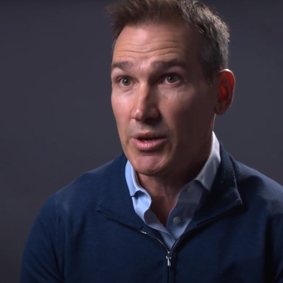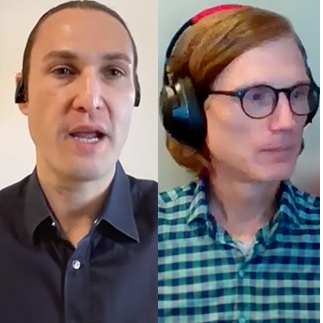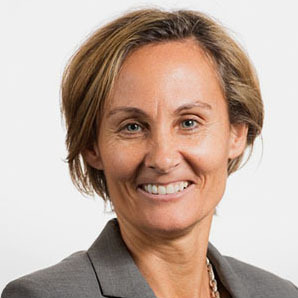Sixty years ago, Fred Schwed penned "Where Are the Customers' Yachts?" The title was inspired by a tale from over a century ago when a visitor in New York marveled at the lavish yachts owned by Wall Street insiders who profited from dispensing financial advice. This visitor pondered the absence of yachts belonging to the customers themselves, highlighting the stark reality that providing financial advice yields far more profit than receiving it. Today, there are new contenders for lavish yachts; whistleblowers.
The new head of the CFTC's Whistleblower Office, Brian Young, might be able to help you secure that big yacht if you've witnessed and reported commodity fraud to the CFTC Whistleblower Office, resulting in a recovery of more than $1 million from a CFTC enforcement action.
Approximately one third of enforcement cases that are pending at the CFTC involve whistleblower tips or complaints, Young said. The whistleblower program promotes fair markets through deterrence, he said. According to Young, the knowledge that someone might report wrongdoing acts as a deterrent for companies, discouraging them from engaging in illicit behavior.
Young dedicated 19 years to the Justice Department, specializing in criminal securities and commodities fraud. During his tenure, he prosecuted cases related to Libor manipulation, FX front running, precious metals spoofing, and more. Notably, some of the cases he handled early in his career involved whistleblowers.
When the position of the head of the CFTC's Whistleblower Office became available, Young saw it as a unique opportunity to leverage various aspects of his background. He viewed it as a chance to transition into roles focusing more on policy and investigation rather than litigation. Young expressed appreciation for the economic and legal dimensions of the Whistleblower program, further highlighting his interest in the role.
Recognizing the vital role of the whistleblower program in enforcing regulations at the CFTC, Young believed that by excelling in his role, he could significantly influence enforcement efforts, he said.
Submitting a whistleblower tip involves visiting Whistleblower.gov and completing a TCR form, which stands for tips, complaints, and referrals.
"You fill out that form and that'll ask you for information about yourself," Young said. "It'll have a couple of boxes that you check sort of generically to describe the matter. And it will enable you to put your own narrative description of what you know, what the person has observed. The process can be anonymous. It does provide the whistleblower or the tipster to remain anonymous."
Whistleblowers can have their lawyers represent them early in the case, providing a degree of anonymity. However, this anonymity may be temporary, as the CFTC will eventually need to know the whistleblower's identity to proceed with the case.
The tip is submitted electronically, and upon receipt, it undergoes review by the agency. Young explained that there are individuals in a triage unit who collaborate with the Whistleblower Office to identify promising leads. Subsequently, these leads are forwarded to the Enforcement Division attorneys, who may initiate an investigation.
For a case to qualify for a whistleblower award, it must entail a minimum of $1 million for the CFTC to recover. The whistleblower must furnish original information, not previously known, which is substantial enough for the CFTC to either launch a new investigation or significantly contribute to an ongoing one, as Young explained.
Since issuing its first award in 2014, the CFTC has awarded approximately $365 million to whistleblowers. Enforcement actions associated with those awards have resulted in monetary relief totaling more than $3 billion.
Whistleblowers can find encouragement in the fact that if the case exceeds $1 million and is grounded on original information they supply, leading to successful action and resolution by the CFTC, they stand to receive between 10 and 30% of the recovered amount, Young said.
If the case is in a priority area for the CFTC, that could lead to an award at the higher end, he said.
Young said that whistleblower regulations direct the CFTC to safeguard the identity of whistleblowers by refraining from disclosing any information that could reasonably lead to their identification. He explained that when the award press release is issued, it will contain no details about the whistleblower. Additionally, the CFTC meticulously scrubs all documents related to the litigation discovery process to ensure that no information regarding the whistleblower is inadvertently revealed, thus preventing any risk of exposing their identity to the opposing party.
"There's really a lot of precautions and a lot of energy put into place and trying to preserve all whistleblowers' confidentiality," Young said.
However, Young cautioned that if a court mandates the CFTC to reveal the identities of the whistleblowers, they are legally obligated to comply with the order. While rare, such occurrences can indeed transpire, he added.
Some whistleblowers will out themselves, he said.
Young highlighted a recent significant development in the whistleblower program wherein the CFTC clarified through a press release that a compliance officer could be eligible for a whistleblower award under specific conditions. To qualify, the compliance officer must first report a complaint to someone within the company and then wait for 120 days before approaching the CFTC. Young pointed out that a recent case awarded a whistleblower award to such a compliance officer, illustrating the practical application of this update.
Young advises potential whistleblowers in the markets, including precious metals, foreign exchange, agriculture, energy, and digital assets, to consider the whistleblower program if they observe any form of market manipulation, insider trading, front running fraud, or regulatory violations such as trading off exchange, failure to supervise, or unauthorized phone conversations. He emphasizes that these are the types of activities that often result in whistleblower awards.

Christian Hauff, CEO of Quantitative Brokers, sat for an interview with John Lothian News about the first futures execution algorithm for options. The new...

Paving the Way for 2024 Digital Asset Industry Optimism The Financial Industry Regulatory Authority ("FINRA") today approved Prometheum Capital LLC to operate as a...

After capping a series of acquisitions with the purchase of Trade Alert, Cboe's senior vice president and head of information solutions talks about why...